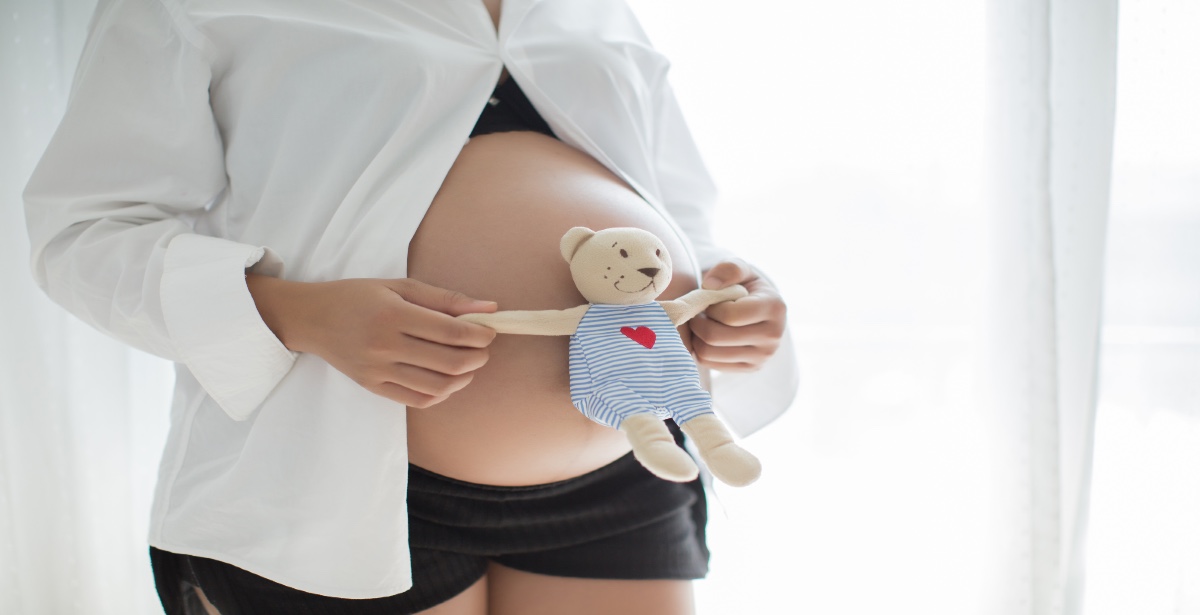Pregnancy is a beautiful and transformative experience, but it also comes with its share of questions and concerns. One of the most common queries for expecting moms is, what are the signs of a healthy pregnancy? Are the symptoms I’m experiencing normal, or should I be worried?
From the early days of morning sickness to the growing belly in later months, it’s natural to wonder if everything is progressing as it should. A healthy pregnancy shows a series of positive signs that reassure you that both you and your baby are doing well. And knowing these signs can help you navigate this journey with peace of mind and confidence.
In this guide, we’ll explore the signs of a healthy pregnancy, trimester by trimester, to help you know what to expect and when to reach out to your healthcare provider.
How To Know If Your Pregnancy Is Healthy?
Pregnancy is divided into three trimesters, and each one brings new changes and developments in your body and your baby’s growth. By understanding what to expect and how to know if your pregnancy is healthy at each stage, you’ll be better equipped to recognize the signs of a healthy pregnancy.
First Trimester Signs: Weeks 1-12
The first trimester marks the earliest phase of your pregnancy, starting from the first day of your last period to week 12. This is the period when your body undergoes rapid changes to nurture the growing embryo. Here are some key signs to help you know if your pregnancy is healthy in the first trimester:
1. Breast Tenderness and Growth
Are your breasts feeling a bit sore or sensitive? This is one of the earliest signs of pregnancy! Your body is preparing for breastfeeding, and that means your breasts may feel swollen or more tender than usual. It can be uncomfortable, but it’s a positive sign that your body is adjusting to pregnancy. The good news is that this tenderness often eases up as you move into the second trimester.
2. Fatigue
Fatigue is a common first trimester symptom, and it’s a sign that your body is working hard to support your growing baby. The hormone progesterone plays a big role in this. Are you finding it hard to get through the day? Just remember that feeling tired is normal, and it’s your body’s way of saying it needs some extra rest to nurture your little one.
3. Frequent Urination
As your uterus starts to expand and hormones shift, you may find yourself heading to the bathroom more often. Frequent urination is a normal early pregnancy symptom, signaling that your body is adjusting to all the changes. If you do experience any discomfort or burning when you urinate, it’s a good idea to contact your doctor as it could be a urinary tract infection.
4. Morning Sickness
Ah, morning sickness! If you’ve started to feel queasy and nauseous, especially in the morning, you’re not alone. It often kicks in around the sixth week and can make you feel a bit off, but it’s usually a sign that your pregnancy hormones, like hCG and progesterone, are doing their job. If morning sickness is tough for you and you’re having trouble keeping food or liquids down, try some home remedies or talk to your doctor if needed.
✨ The good news? Morning sickness is manageable! ✨
Find out how by reading – HOW TO COPE WITH MORNING SICKNESS.
Second Trimester Signs: Weeks 13-26
The second trimester is often called the “honeymoon phase” of pregnancy because many women start to feel better after the rough first trimester. Your baby is growing quickly, and you may start to feel movement for the first time. Here are the signs of a healthy pregnancy during the second trimester:
1. Fetal Movement
Feeling your baby move is one of the most exciting milestones of the second trimester! You might start to feel those little flutters, often referred to as “quickening,” between weeks 18 and 22. Isn’t it amazing?
Regular movement is a strong indicator that your baby is growing and developing normally. If you feel a decrease in movement, it’s important to consult your doctor for reassurance.
2. Growing Belly
As your baby grows, your belly will start to show! It can be a fun moment when you notice that bump. Are you excited to see your body change?
The size of your belly may vary from person to person, but consistent growth is a great sign that your pregnancy is on track. Your growing belly is a visible reminder that your baby is developing well.
3. Increased Energy Levels
For many women, the second trimester brings a nice boost in energy. If you find yourself feeling more energetic, it’s a sign that your body has adjusted to the hormonal changes of pregnancy. Enjoy this newfound energy! It can really help you make the most of this phase.
4. Normal Blood Pressure
Your healthcare provider will continue to check your blood pressure during the second trimester to ensure it stays within a healthy range. Stable blood pressure is crucial for a healthy pregnancy. Elevated blood pressure could indicate potential complications, so staying on top of your prenatal appointments is key.
5. Healthy Weight Gain
Gaining weight at a steady pace is important as your baby grows. During the second trimester, gaining about a pound a week is typically considered healthy. This weight gain followed by a healthy pregnancy diet means your baby is getting the nutrients they need. Your doctor will monitor your progress to ensure everything is on track, so don’t hesitate to ask questions during your visits!
Third Trimester Signs: Weeks 27-40
The final stretch of your pregnancy, the third trimester, is all about your baby preparing for birth. Your body continues to change as you get ready to welcome your little one. Here are the signs of a healthy pregnancy in the third trimester:
1. Strong and Regular Fetal Movements
By the third trimester, your baby’s movements should be strong and regular. Can you feel those kicks and rolls? These movements indicate that your baby is healthy and active. Tracking these movements can give you peace of mind. If you notice a decrease in activity, don’t hesitate to contact your healthcare provider; it’s better to be safe.
2. Braxton Hicks Contractions
You might start feeling Braxton Hicks contractions, often called “practice contractions.” Have you experienced these yet? They’re typically irregular and painless and help prepare your body for labor. It’s normal, but if they become regular or painful, reach out to your doctor for guidance.
3. Consistent Weight Gain
Consistent weight gain continues to be important in the third trimester as your baby grows rapidly. Gaining weight steadily during this time shows that your baby is developing well. Your doctor will keep monitoring this to ensure that both you and your baby are healthy.
4. Normal Blood Pressure
Monitoring your blood pressure remains crucial during the third trimester. High blood pressure, especially when paired with swelling or vision changes, could signal complications. So keeping an eye on it is important. As long as your blood pressure stays normal, that’s a reassuring sign that you’re both healthy and safe as your due date approaches.
5. Leaking Colostrum
In those final weeks, you may notice your breasts leaking a yellowish fluid called colostrum. It is nutrient-rich and will feed your baby in the first days after birth until your milk comes in. It’s a positive sign that your body is getting ready for breastfeeding, showing that your hormones are working as they should.
How To Know If Your Pregnancy Is Healthy Overall
In addition to the trimester-specific signs mentioned above, there are some general indicators that your pregnancy is progressing smoothly:
1. Regular Prenatal Visits
Regular checkups with your doctor ensure that your baby is growing as expected. These visits allow your healthcare provider to monitor your blood pressure, weight, and the baby’s development.
2. Normal Lab Results
Blood tests and ultrasounds are performed throughout your pregnancy to check for potential issues. If your test results come back normal, it’s a good sign that your pregnancy is healthy.
3. Positive Ultrasound Scans
Ultrasound scans allow your doctor to monitor your baby’s growth, movement, and heartbeat. A positive scan showing normal development is a strong indicator of a healthy pregnancy.
4. Balanced Emotional Health
While mood swings are normal due to hormonal changes, feeling generally positive and emotionally stable is important. Severe depression or anxiety should be addressed by a healthcare professional.
5. Healthy Diet and Hydration
Eating a balanced diet rich in vitamins and minerals, along with staying hydrated, supports your baby’s development and keeps you healthy during pregnancy.
When To Seek Professional Help
While most pregnancies progress without any major problems, there are times when you should reach out to your doctor to ensure everything is okay. Here are some signs that may require medical attention:
- Heavy bleeding or clotting
- Severe or persistent abdominal pain
- Reduced fetal movements
- Sudden, severe swelling of the hands, feet, or face
- Severe headaches, vision changes, or dizziness
- High fever or flu-like symptoms
Understanding the signs of a healthy pregnancy trimester by trimester can help you feel more relaxed during your journey. By paying attention to your body and attending regular prenatal visits, you can be reassured that both you and your baby are thriving.




